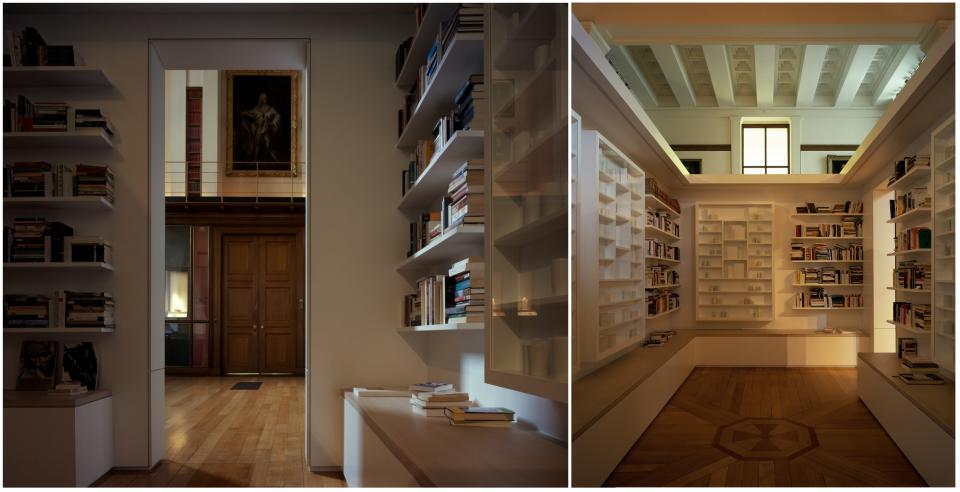The artist donated his “library of exile” to the Mosul University Library, once one of the largest libraries in West Asia, housing over a million books and rare historical materials, before it was destroyed.
According to Hyperallergic.com, the University of Mosul (UoM) once held one of the largest libraries in West Asia, housing over a million books and rare historical materials, including a Quran from the ninth century and periodicals dating back to 1700 BCE. After Islamic State forces captured the city in 2014, much of its invaluable collection turned to ashes. Militants of the terrorist group burned down the building and its contents in what UNESCO described as “one of the most devastating acts of destruction of library collections in human history.”
With a donation of nearly 2,000 books from his installation “library of exile,” the British artist and author Edmund de Waal is doing his part to rebuild the university’s razed collection. First shown in a temporary pavilion at the 2019 Venice Biennale, the piece brings together volumes dealing with themes of exile, displacement, and repression.
Encompassing over 100 authors and texts translated from dozens of languages, the trove includes pivotal works, from Ovid’s Metamorphoses to Kayo Chingonyi’s Kumukanda — all of which will now grace the University of Mosul library’s shelves. De Waal’s gift is a poignant extension in the life of “library of exile,” a work conceived to prompt reflections on loss in an intimate space of quiet contemplation.
The books will be transported to Mosul with the support of the Iraqi Embassy in London as well as the UK-based nonprofit Book Aid International. The latter has purchased thousands of books for UoM, in part by getting British universities to donate their library fines to an acquisition fund.
Following its debut in Venice, “library of exile” traveled to the Japanisches Palais in Dresden and the British Museum in London. De Waal has gifted the installation’s external walls, which are painted with liquid porcelain and inscribed with the names of great lost libraries — including that of Mosul University — to the London’s Warburg Institute, whose acclaimed humanities library houses the largest collection of titles related to Renaissance studies and the history of the classical tradition.

